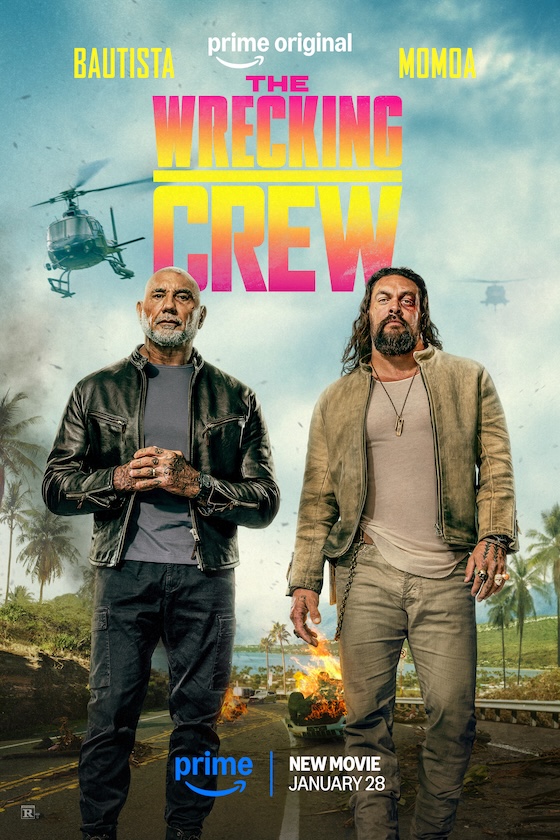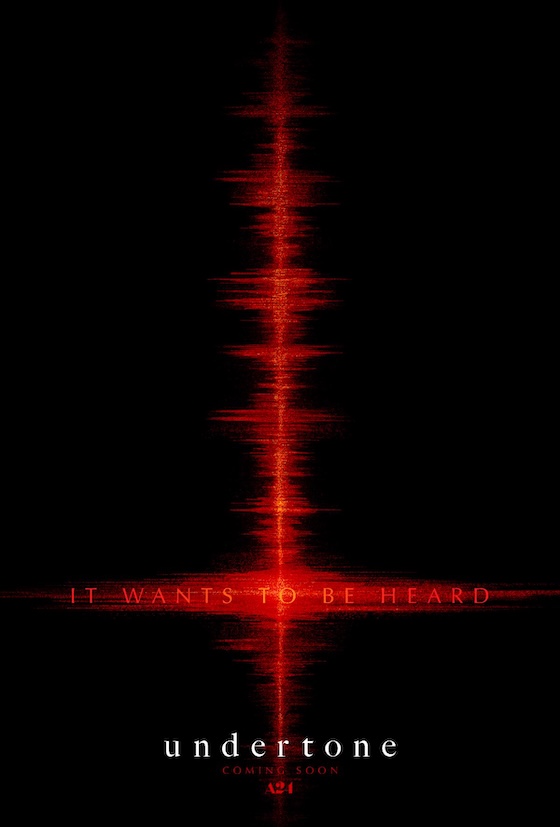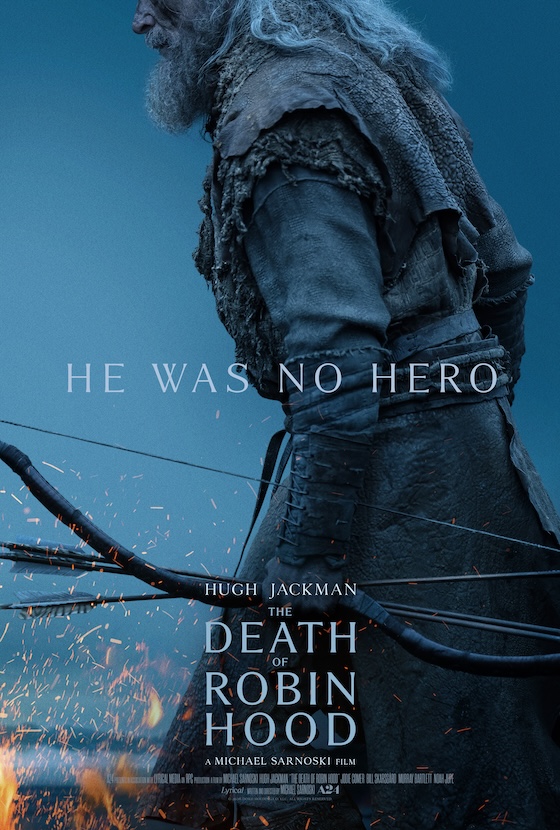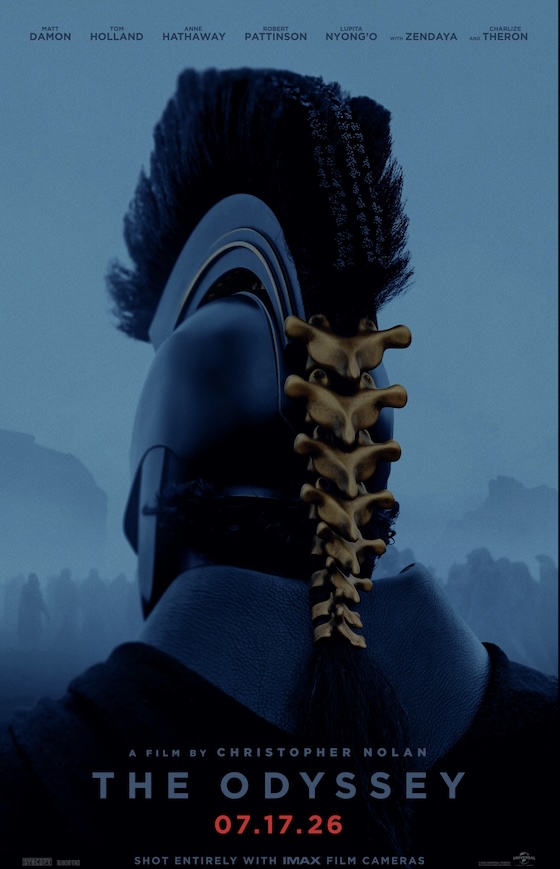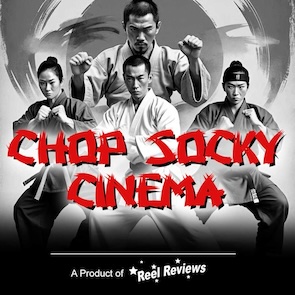{googleAds}
<div style="float:left">
<script type="text/javascript"><!--
google_ad_client = "pub-9764823118029583";
/* 125x125, created 12/10/07 */
google_ad_slot = "8167036710";
google_ad_width = 125;
google_ad_height = 125;
//-->
</script>
<script type="text/javascript"
src="http://pagead2.googlesyndication.com/pagead/show_ads.js">
</script></div>{/googleAds} Moviegoers coming of age after the likes of Jaws (1975) and Star Wars (1977) ushered in the glossily produced, widely opened, mass-merchandised movie blockbuster 30-plus years ago, may not be aware, or appreciate, what the last golden era ”the 1970s”of American movies said about unwilling heroes and their nonconformance to a hypocritical society. To paraphrase director Quentin Tarantino, the sensibilities of '70s American cinema began, strangely enough, in 1967.Whether cinematic art was imitating life, or vice-versa, could it be any small wonder that the U.S.'s military presence in Vietnam would engender such hostile anti-government sentiment from young Americans back home? Defiance and dissent, on screen and in the aisles, came to define late '60s and early '70s American film and culture. Cool Hand Luke (1967) was among the handful of American movies to fire the first rounds in the revolution "Boss."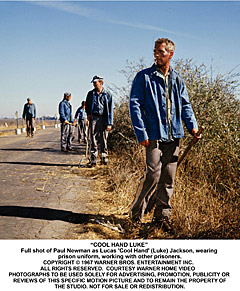 In apparent conflict with American studios' commercial interests, in one 12-month period,a scattering of never-before-seen anti-hero, anti-establishment, and anti-conformist movies cut out for a new direction across the country in 1967. Bonnie and Clyde, The Graduate, In the Heat of the Night, The Dirty Dozen, and In Cold Blood struck a collective dissonance chord with audiences and, to the surprise of "Old Hollywood," all received major Academy Award nominations and, in most cases, took home Oscar(s). As the long-standing production code, in force since 1934, crumbled, the concept of a movie rating system hadn't been introduced yet. Like rock 'n' roll barely ten years before, the more American movies thumbed their noses at "the system's" rules and regulations, the more, paradoxically, mainstream acceptance they earned.
In apparent conflict with American studios' commercial interests, in one 12-month period,a scattering of never-before-seen anti-hero, anti-establishment, and anti-conformist movies cut out for a new direction across the country in 1967. Bonnie and Clyde, The Graduate, In the Heat of the Night, The Dirty Dozen, and In Cold Blood struck a collective dissonance chord with audiences and, to the surprise of "Old Hollywood," all received major Academy Award nominations and, in most cases, took home Oscar(s). As the long-standing production code, in force since 1934, crumbled, the concept of a movie rating system hadn't been introduced yet. Like rock 'n' roll barely ten years before, the more American movies thumbed their noses at "the system's" rules and regulations, the more, paradoxically, mainstream acceptance they earned.
In 1967, the traditional "safe" Best Picture nominees, Guess Who's Coming to Dinner and Doctor Doolittle, with their familiar and reliable studio-packaged movie stars and inflated studio-backed monster budget, respectively, held onto Hollywood's past with a vice-like grip. But it was too late. The changing of the guard had begun and the artistic revolution was in full swing. The French New Wave's cinematic influence was now a force to be reckoned with. Nonconformance was cool; violence was hip. The individual fought structure and the medium of film finally ended up in the rightful owner's hands ”the director's. Put it this way: were Salinger's novel Catcher in the Rye (1951) ever to have been made into a feature, it couldn't have been made before 1967.
Cool Hand Luke was on the front battle line as the New Hollywood wrestled the future away from Old Hollywood. That the movie did it with a traditional studio leading man ”Paul Newman” is a testament to Luke's reverential devotion to the power of one, to the individual. So long ago it was that Lyndon Johnson was President when we met for the first time that person, that man, that "world-changer," Luke (Paul Newman). No last name. None needed. Simply, Luke, will do.
The then 42-year-old Newman shows what it means to carry a movie, to hold the screen with a movie star's impossibly good looks. Wanna see where Tim Robbins' Andy Dufresne gets his inspiration in The Shawshank Redemption? look no further than Luke. It's all there. In many ways, now, more so than ever. Luke has been digitally remastered into a Deluxe Edition that is so pristine the prison chain-gang looks like they're loathsomely greeting yesterday morning's dawn, rather that those of 41 years ago. Thanks to technology's advancements and time's passage, the cast of convicts is more recognizable than ever: the Oscar-winning George Kennedy (before he became a parody of himself in the '70s and '80s), Strother Martin (you know the line, don't you?), Dennis Hopper (the Easy Rider doesn't speak a single line), M*A*S*H's (TV) Wayne Rogers, Harry Dean Stanton, and a fleeting Joe Don Baker.
Perhaps it's poetic that Mr. Newman died a mere 19 days, in 2008, after this Deluxe Edition of Cool Hand Luke was re-issued. With a little luck and a lot of defiance, a new generation of movie lovers will have the chance to see that this humble, gray-headed screen icon, who lived 83 years, still personifies cool. May it be that the chains that would bind Luke remain broken for at least another 41 years.
|
||||||||||||||||||
DVD Details:
Screen Formats: 2.35:1
Subtitles: English, Spanish, French, Danish, Dutch, Finnish, German, Italian, English SDH, Japanese, Norwegian, Portuguese
Language and Sound: Closed Captioned; French: Dolby Digital Mono; English: Dolby Digital Mono; Spanish: Dolby Digital Mono; German: Dolby Digital Mono; Italian: Dolby Digital Mono; Japanese: Dolby Digital Mono; Portuguese: Dolby Digital Mono
Other Features: Black/White; interactive menus; scene access; commentary; documentary.
Commentary
- Feature-length commentary track with by historian/Newman biographer Eric Lax
Featurettes
- Documentary on the making of the movie
Number of Discs: 1 with Keepcase Packaging
{pgomakase}


